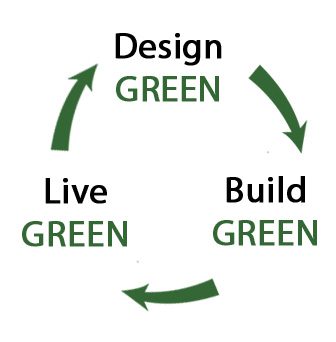How Do You Avoid a Builder Scam?
Know the Signs to Watch Out For

Chose The Right Builder for your peace of mind
The Signs are Always There
We hear of new scams all the time. You can hardly pick up a newspaper these days without reading about some unscrupulous people devising a new scam to take advantage of unsuspecting people. While this may be true, it doesn’t mean you have to become a victim. Knowing what signs to watch for can help keep you out of trouble. Pay attention to these warning signs:
- Too Good To Be True: When a builder gives you a price that sounds too good to be true, be wary. If a builder says yes to all of your questions, walk away. If you ask him if something is included in his price, and he always answers yes, be cautious. It can’t all be included! If it sounds too good to be true, it probably is.
- Too Few References: If a builder is only willing to give you one or two references, you should wonder why. Any builder can give you a couple of references, although it may be his brother, cousin, and very best friend. Make sure the references you get are recent and credible.
- Rush to Contract: If a builder is trying to get you to rush to sign a contract with him, you should see red flags waving and a caution light going off. Building a custom home is a big decision, and if you’re rushed into signing something, you could be in for some big surprises later.
- Check Online Resources: There are online resources available where you can verify some important information on the builder. In some states, you can do online verification of a builder’s credentials and license, verify how long he has been in business, the tax ID number, search for liens, find out if their workers compensation insurance is current or has ever been cancelled. Another good resource is your local Better Business Bureau.
- Vague Specifications: Is your builder “open book?” If the specifications are vague (type of material, quality, and finishes for your home), and/or incomplete, ask that they be made specific. Vague specifications leave a lot of room for interpretation and are one way a scammer can argue later. If you sense your builder is being vague or giving you specifications that are incomplete, consider getting a bid from another reputable builder to compare the specifications from each builder. This will help you raise your level of confidence in the builder you choose that he is being honest and forthright about what he is, and what he isn’t, providing in his proposal for your new home.
- Insufficient Allowances: One of the most common ways that a builder could present a price that is too good to be true is to knowingly or unknowingly include allowances that are insufficient to complete your home as you expect it. The allowances provided should mean something to you. You should have a good sense as to what your allowances will buy. In researching your allowances, if you find that the level of quality that the allowances provide are consistently less than what you and your builder discussed, be wary.
A little healthy skepticism is a good thing. Respect and trust are earned and you want your builder to earn your respect. If you have any suspicions at all that a builder is trying to scam you, do not sign a contract with him, even if it means you have to start all over again with another builder. When it comes to building your new home, trust is everything.
Make sure your builder earns your trust and respect before you sign a contract.
Building A Quality Custom Home
Want to know more? This book by Sean Sullivan is full of helpful information in easy-to-read chapters like this blog post.
It is a step-by-step guide to the “must-know” issues of building your dream home. Discover the custom-home construction secrets that could save you headaches, heartaches, and thousands (if not tens of thousands) of dollars.


